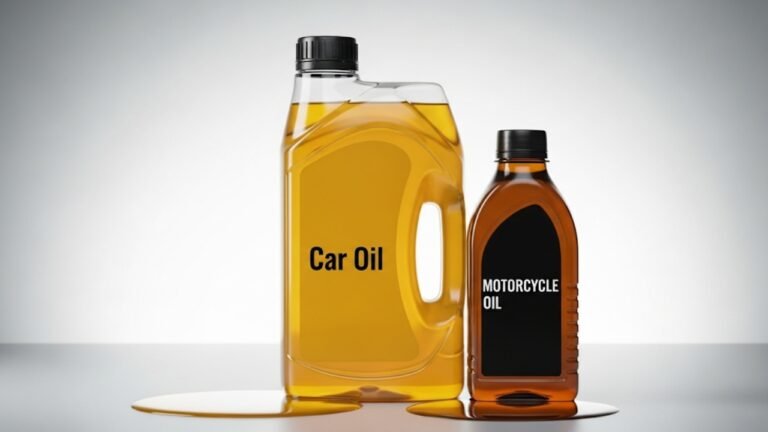What Oil My Car Takes: The Honest Driver’s Guide to Picking the Right Oil

I remember standing in front of the auto store shelf, staring at dozens of bottles with labels like “5W-30,” “High Mileage,” and “Full Synthetic.” My hands were in my pockets, but my mind was racing with one question: what oil my car takes?
That’s the moment it hits every car owner. You know your car needs oil, but suddenly the choices feel overwhelming. Do you follow the manual, go with what your mechanic said last time, or try something new?
Whether you’re a first-time driver or someone who’s been behind the wheel for decades, understanding what type of oil your car needs can feel like deciphering an ancient code. But it doesn’t have to be that way.
In this guide, I’ll walk you through everything you need to know—from oil types and viscosity grades to special conditions that might affect your choice. I’ll also share real-life tips, emotional lessons learned, and the small things that matter in big ways.
Let’s find out what oil your car takes—with clarity, confidence, and a little bit of storytelling.
Your Car’s Soul Food: Why the Right Oil Matters
Think of oil like the lifeblood of your engine. Just like your body can’t run without blood, your engine can’t function without oil. And just like not all blood types are the same, not all oils suit every engine.
Using the wrong oil won’t immediately break your car, but over time it can clog, overheat, and wear down parts like a slow-growing disease.
When you ask, “what oil my car takes,” you’re really asking what keeps your engine happy, healthy, and running smooth for years to come.
Here’s what the right oil does:
- Lubricates engine parts to reduce friction.
- Cleans dirt and sludge from critical areas.
- Cools engine parts by transferring heat.
- Protects against rust and corrosion.
If your oil is wrong for your engine, it may:
- Cause poor fuel efficiency.
- Trigger the check engine light.
- Shorten your engine’s lifespan.
- Make weird knocking sounds.
And yes—I learned that the hard way in college when I borrowed my uncle’s truck and added leftover oil I found in the garage. The truck chugged like a smoker running a marathon.
Know Thy Manual: Your Car’s Personal Recommendation
Here’s the truth: your car manual is not just that dusty book in the glove box—it’s your car’s personal diary. It tells you exactly what it likes, including the precise oil your car takes.
Inside the maintenance section, you’ll find:
- Recommended oil viscosity (like 5W-30 or 0W-20)
- Preferred oil type (conventional, synthetic blend, or full synthetic)
- How often to change the oil (mileage interval)
Pro Tip: If you’ve lost the manual, look it up online. Most automakers now offer free downloadable PDFs on their official websites.
This isn’t a suggestion—it’s gospel. The engineers who built your car wrote those numbers for a reason. And following them means you’re giving your car what it was literally born to run on.
Decoding Viscosity: What Those Weird Numbers Mean
Let’s break down the mystery behind labels like 5W-30. I used to think they were some kind of formula code, like something from a math class. Turns out, they’re actually pretty simple.
| Viscosity Grade | What It Means | Ideal For |
|---|---|---|
| 0W-20 | Very thin, flows in cold | Newer engines, fuel economy |
| 5W-30 | Balanced thickness | Most cars, year-round use |
| 10W-40 | Thicker oil | Older engines, hot climates |
| 15W-50 | High-performance, racing | Sports or track cars |
- The first number (before W) tells how well oil flows in cold weather.
- The second number (after W) tells how it performs when hot.
So when figuring out what oil your car takes, you need to think about:
- Your climate (cold vs hot)
- Your driving style (stop-and-go or long highway cruises)
- Your engine’s age
If you’re in Florida, a thicker hot-weather oil may be best. But in snowy areas like Minnesota? You’ll want oil that flows in freezing temps.
Synthetic, Conventional, or Blend? Choose Your Oil Family
Not all oil is created equal. And this is where many people overpay—or worse, under-serve their engine.
When people ask “what oil my car takes”, they often forget that the oil’s base type is just as important as the viscosity.
Here’s a simple breakdown of oil types:
Conventional Oil
- Made from crude oil.
- Cheaper but breaks down faster.
- Best for older cars or low-mileage vehicles.
Synthetic Blend Oil
- A mix of conventional and synthetic.
- Offers better performance without the high price.
- Good for moderate climates and mid-range vehicles.
Full Synthetic Oil
- Man-made molecules for better protection.
- Lasts longer, cleaner, ideal for newer engines.
- Perfect for harsh driving or extreme temperatures.
When I switched to full synthetic on my Honda Civic, I felt the difference immediately. Smoother idle, quicker starts, and better mileage. Yes, it cost more, but it felt like upgrading from instant coffee to fresh espresso.
High Mileage Oils: Magic or Marketing?
If your car has over 75,000 miles, you’ve probably seen “High Mileage” labels and wondered if they’re a gimmick. The truth? They’re not magic, but they do help.
High mileage oil includes:
- Seal conditioners to reduce leaks.
- Extra detergents to clean old gunk.
- Additives to protect aging parts.
So, does your car need it? Here’s a cheat sheet:
| Condition | Use High Mileage Oil? |
|---|---|
| Over 75,000 miles | Yes |
| Minor oil leaks | Yes |
| Burning oil | Yes |
| Recently rebuilt engine | No |
| Already using synthetic | Optional |
If you’re driving a 15-year-old Corolla with some oil drips in the driveway, switching to high mileage oil could seriously help. But if you’ve just restored a classic Mustang? You might be better sticking with traditional options.
Climate and Driving Style: What Really Affects Oil Choice
The kind of oil your car takes can change depending on where—and how—you drive. A one-size-fits-all approach doesn’t always work.
Let’s get personal. Here’s how different factors affect your oil:
Climate Matters
- Cold winters need low “W” numbers like 0W-20 or 5W-30.
- Hot climates benefit from higher second numbers like 10W-40.
Short Trips vs Long Drives
- Short, stop-and-go trips cause more wear. Synthetic helps.
- Long highway drives burn oil slower, so blends may suffice.
Heavy Loads or Towing
- If you tow trailers, carry equipment, or drive up steep roads, you need oil with extra protection. High-performance synthetics are ideal.
Knowing what oil your car takes also means knowing how you treat your engine. Are you babying it or pushing it hard?
I once used standard oil on a road trip through the Nevada desert in July. Never again. My engine practically cried for mercy until I gave it synthetic relief.
Oil Change Intervals: When to Refresh the Lifeblood
Even if you use the perfect oil, it’s useless if you don’t change it on time. Over time, oil breaks down, collects dirt, and loses its ability to protect your engine. So it’s not just about what oil your car takes, but also about when you replace it.
Here’s a general guide based on oil type:
| Oil Type | Change Interval | Best For |
|---|---|---|
| Conventional Oil | Every 3,000 – 5,000 miles | Older cars, minimal use |
| Synthetic Blend Oil | Every 5,000 – 7,500 miles | Moderate driving, mild climate |
| Full Synthetic Oil | Every 7,500 – 15,000 miles | Newer cars, extreme conditions |
Important Note: Always go with what your manual or trusted mechanic recommends. Don’t stretch it too far, especially if you’re commuting in traffic or hauling loads. And if you notice black, sludgy oil on the dipstick? It’s time—no matter what the mileage says.
I once pushed a synthetic oil past 15,000 miles because life got busy. Big mistake. The engine started knocking on cold starts. Lesson learned: oil is cheap; engines are not.
What Happens If You Use the Wrong Oil?
You might be thinking, “It’s just oil. Close enough should work, right?”
Wrong.
Using the wrong oil won’t always cause instant disaster, but it can quietly damage your engine over time. Here’s what can go wrong:
- Thick oil in cold weather can make it hard to start your car.
- Thin oil in hot weather may burn too quickly or offer poor protection.
- Wrong additives can react badly with seals, leading to leaks.
- Increased friction from incorrect viscosity leads to wear and overheating.
When my cousin used 10W-40 in his compact car during a snowy Michigan winter, the engine turned over slower than molasses. He thought the battery was dead, but it was the oil refusing to flow.
So, again: if you’re asking “what oil my car takes,” remember—close enough isn’t close enough when it comes to engine care.
Common Myths About Motor Oil
Let’s bust some myths. These have confused even experienced drivers for years.
Myth 1: You Must Change Oil Every 3,000 Miles
That’s old-school. Today’s engines and synthetic oils go much longer. Follow your car’s recommendations.
Myth 2: Synthetic Oil Causes Leaks
Nope! Synthetic is actually better at protecting seals—unless your engine is already damaged.
Myth 3: Dark Oil = Bad Oil
Oil turns dark because it’s doing its job—cleaning your engine. It doesn’t always mean it’s bad.
Myth 4: Switching Oil Brands Will Damage Your Engine
Engines don’t care about brand. They care about specs, viscosity, and type.
Myth 5: All Cars Can Use Full Synthetic
Not always. Some older engines or performance vehicles require specific blends or additives.
When deciding what oil your car takes, keep your ears open—but check the facts. There’s a lot of noise out there.
Personal Story: The Day I Got It Right
Let me take you back to the summer I drove my first real car—a 2004 Toyota Camry handed down from my aunt. The car was reliable, but always ran a little rough. I figured it was just “old.”
Then one day, I changed from basic 10W-30 conventional to full synthetic 5W-30. That car felt like it had gone to the spa. Quieter, quicker, smoother. The kind of change you only notice when you’ve been living without it.
It turns out I had been asking what oil my car takes—and using the wrong answer for years.
Frequently Asked Questions
1. How do I know what oil my car takes?
Check your owner’s manual or the oil cap under the hood. You can also search by make/model online or use oil lookup tools on manufacturer websites.
2. Can I switch between synthetic and conventional oil?
Yes, but do it thoughtfully. Synthetic offers better protection. If switching from conventional, do an engine flush or gradual change with a blend.
3. Is high mileage oil worth it?
Absolutely—if your car has 75,000+ miles and shows signs of age, like leaks or oil consumption. It helps rejuvenate seals and protect older components.
4. What happens if I use the wrong viscosity oil?
Too thick and your engine may struggle in cold weather. Too thin and it won’t protect at high temperatures. Always follow your manual.
5. Can oil type affect fuel economy?
Yes! The right synthetic oil reduces engine friction, which can improve fuel economy by up to 2–3%.
6. How long can I drive with old oil?
Don’t risk it. Driving too long on old oil can cause engine sludge, wear, and even failure. Follow your oil change schedule closely.
7. Should I use different oil in winter?
Yes, colder temps need oil that flows easily—like 0W-20 or 5W-30. Check your manual for seasonal recommendations.
8. Do newer cars always need synthetic oil?
Most modern cars are built for synthetic, especially turbocharged or high-efficiency engines. Always go with the manufacturer’s recommendation.
Final Thoughts: Listen to Your Engine
In the end, figuring out what oil your car takes is like learning your vehicle’s love language. When you listen to what it needs—whether it’s full synthetic for a turbo engine, or high mileage oil for an aging commuter—you keep the relationship strong.
Cars may seem like machines, but they have personality. They give you signals. They appreciate care. The better oil you feed them, the longer and smoother they’ll serve you.
So the next time you’re standing in front of that towering oil shelf, you won’t panic. You’ll smile, pick the right bottle with confidence, and know your car will thank you every mile.






